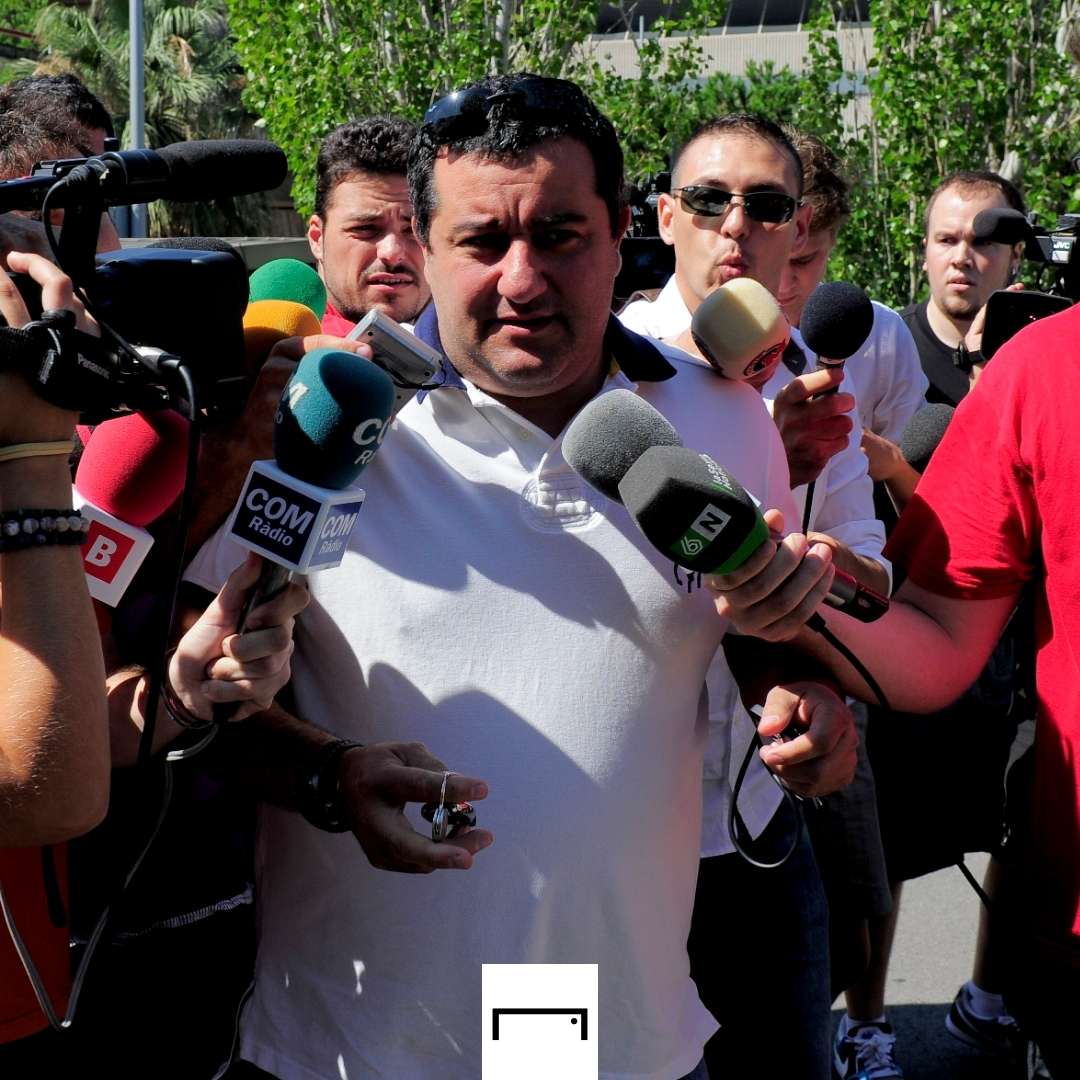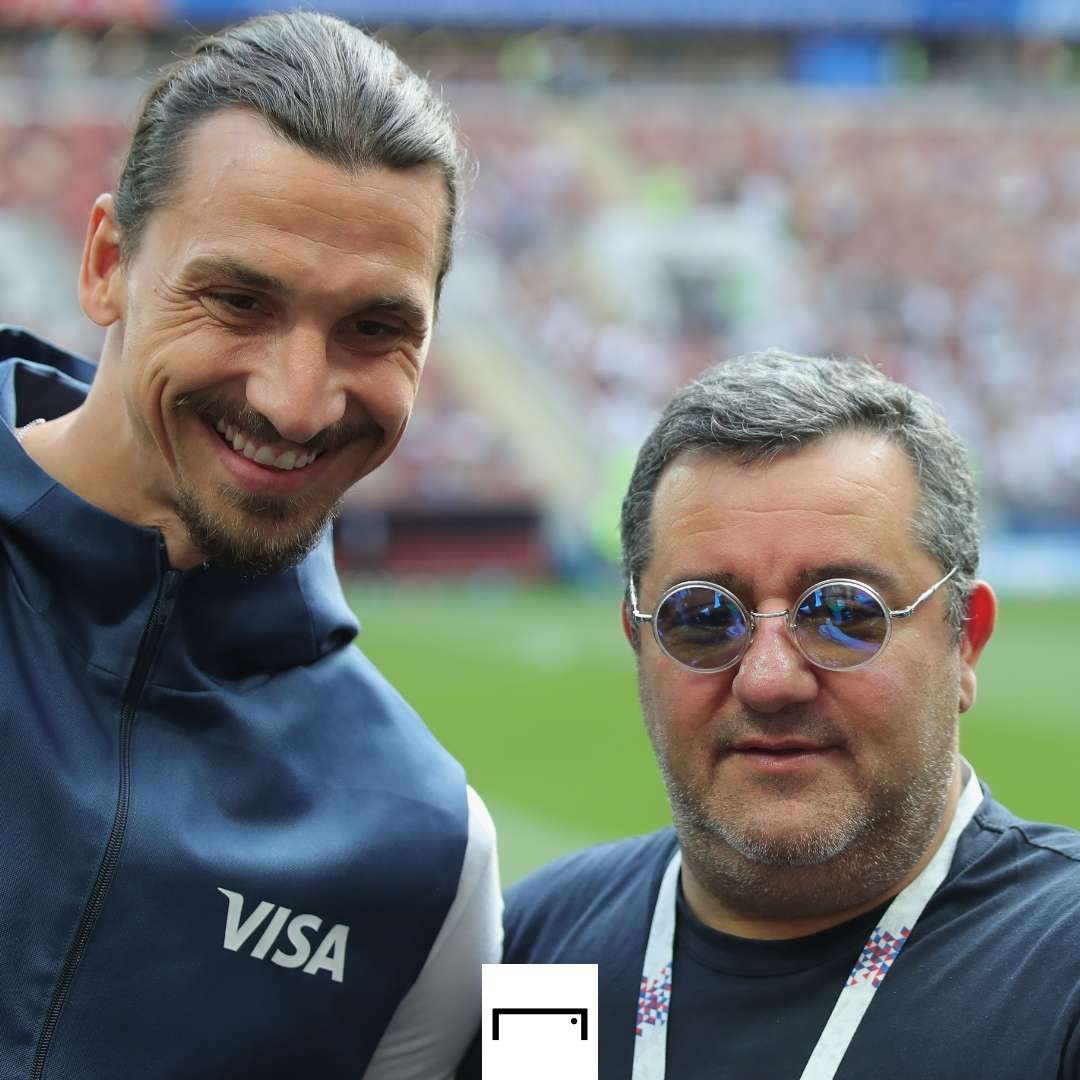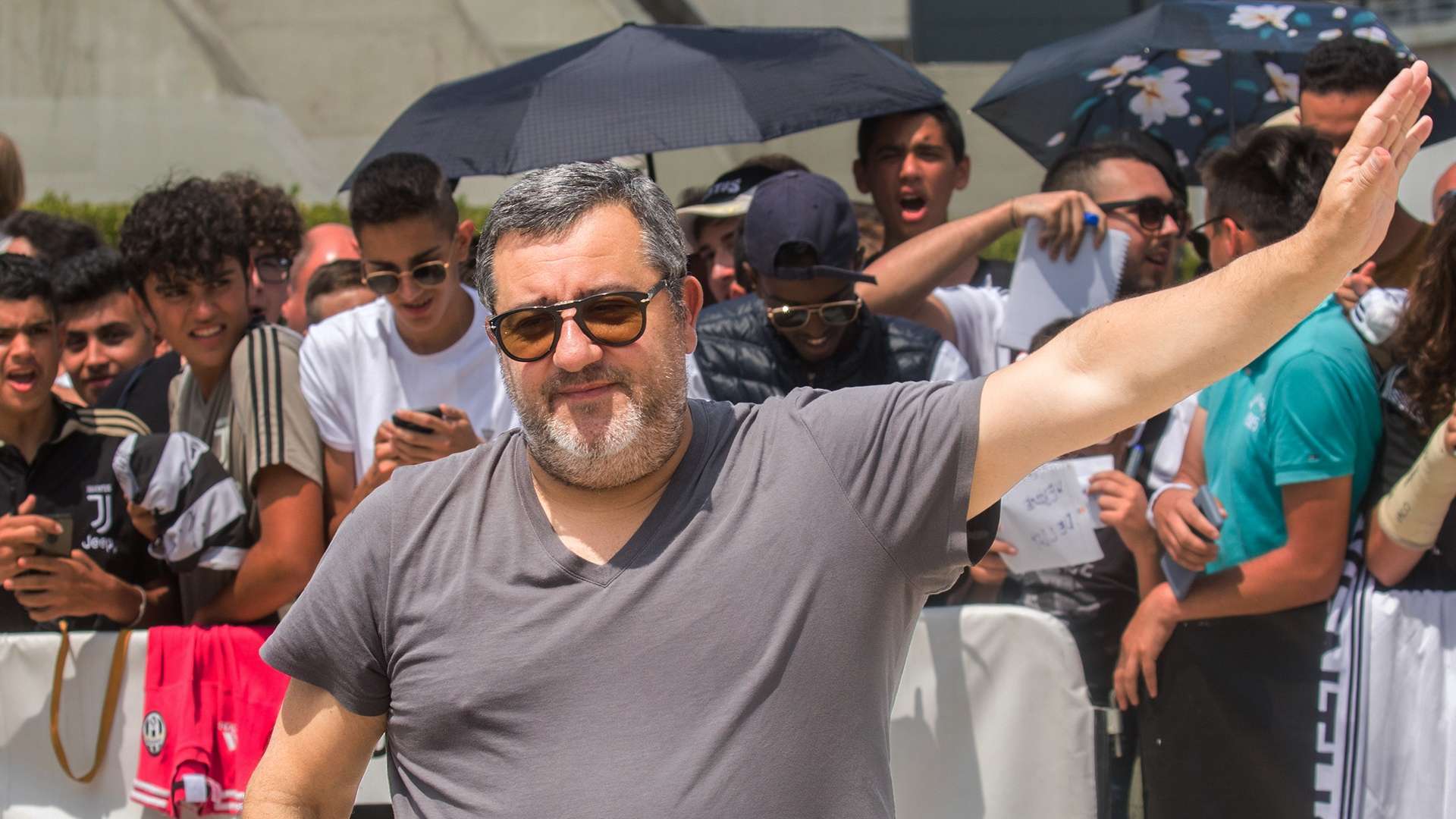Mino Raiola had an accountancy firm called Maguire Tax & Legal, its name inspired by an Oscar-winning movie starring Tom Cruise.
Many of his adversaries within the game were offended by the insinuation he was any way similar to Jerry Maguire, the fictional sports agent who comes to champion love (or 'kwan') over greed.
However, his clients would always tell you the comparison was just; that he formed a special bond with each and every one of them.
Such polarised opinions perfectly illustrated the way in which Raiola divided the football world.
He will forever be remembered as one of its most controversial yet compelling characters, seemingly loved and loathed in equal measures, a self-styled super-agent doing right by clients, but wrong by clubs.
The 54-year-old was born in Agri, Italy, but his parents emigrated to Netherlands when he was still an infant, settling in Haarlem.
It was in this Dutch municipality that Raiola was raised before taking the first steps to becoming arguably the 'king of super-agents'.
Raiola was a moderately talented player in his youth and he played for his local club before quitting the game at just 18.
However, while he started studying law, he had not lost his passion for football, electing to take charge of the Haarlem youth team.
Even at such a tender age, Raiola was a straight-talker with a distinct lack of respect for any figure of authority other than his restaurateur father.
“The president of Haarlem came to eat with us every Friday,” he explained in an interview with Il Secolo XIX in 2011. “I was always telling him that he knew nothing about football.
"One day he takes me aside and says: ‘Listen, you try it.’ He appointed me sporting director.”
Raiola, though, became frustrated by his inability to make what he believed were the requisite changes due to a lack of funds.
However, with Dutch players very much in vogue in the mid-1980s, he saw that there was money to be made in selling his adopted nation’s top footballing talent to Italy, which was then the centre of the footballing universe.
Raiola, having honed his skills as a mediator while working as a broker for Dutch businessmen with commercial interests in Italy, negotiated a deal with the players' union in the Netherlands that enabled him to represent all of the country’s footballers.
His goal at this point was to establish a special working relationship with Napoli, “the club of my heart”. However, the deal collapsed.
"I called [then Partenopei president Corrado] Ferlaino and we started the collaboration," he later explained.
"I offered him [Dennis] Bergkamp for 700 million lire [€362,000]. He hesitated. Two years later [1993], he offered €14 million, but I gave the player to Inter."
With the Bergkamp deal, which also saw Wim Jonk join the Nerazzurri from Ajax, Raiola had established himself as a major player in Serie A, the deal coming as it did a year after Bryan Roy's successful switch from Amsterdam to Foggia.
What was clear at this juncture was that Raiola was as adept at pleasing his clients as upsetting their clubs.
 Getty/GOAL
Getty/GOALIndeed, Ajax, who had profited substantially from Raiola-arranged deals during the early 1990s, were less enamoured with the way in which star forward Zlatan Ibrahimovic left for Juventus in 2004.
Their ill-feeling only intensified two years later when the fallout from Calciopoli led to the release of the following recorded telephone exchanges between then Bianconeri managing director Luciano Moggi and Raiola:
Moggi: "You and Ibra continue to make trouble. Don't send him to training ..."
Raiola: "Tomorrow, I'll keep the player at home all day; he won't show up for training. I then have an appointment with the directors of Ajax at noon, but I'll come at two ..."
Raiola's influence on players was also questioned by Manchester United boss Sir Alex Ferguson during his club’s ultimately futile attempts to persuade former midfielder Paul Pogba to remain at Old Trafford in 2012.
The Scot subsequently admitted that he and Raiola took an instant dislike to one another, saying they were like "water and oil".
Raiola's relationship with Pep Guardiola was even worse, with the agent labelling the Catalan a "coward" and a "dog", and even suggesting that the former Barcelona boss should have been sent to a psychiatric hospital for not playing Ibrahimovic.
 Getty/GOAL
Getty/GOALRaiola also claimed that he "went for" Guardiola after the 2011 Champions League final at Wembley but was held back by then-AC Milan CEO Adriano Galliani.
"Lucky for Guardiola!" Raiola quipped.
In his eyes, his willingness to literally fight for his clients underlined his commitment to their cause, while he always insisted that he did not engineer transfers, but merely facilitated them.
"I think that when a player decides to leave a team he should leave," he reasoned. "I have never made compromises; I work exclusively in the interest of my client.
"The players are my fortune and I have a great responsibility towards them. However, I have never carried out improper activity or activity that I, personally, do not think proper.
"The old agents favoured the interests of the club. For me, the player comes first.”
And that is precisely why they continued to flock to him.
From Ibrahimovic and Pogba to Erling Haaland and Gigi Donnarumma, Raiola remained arguably the most influential agent in football right up until his untimely death at the age of 54.
There were always question marks over the size of his cuts, but that was part of a broader debate over the role of agents within the game.
Whatever one's view of Raiola's role in transfers, there is no denying that this was a man with a unique way with words who knew not only to sell himself, but also his players.
He spoke eight languages (Italian, Dutch, French, English, German, Spanish, Portuguese and "of course Neapolitan") and had a particular flair for hyperbole.
He memorably compared Pogba with a Salvador Dali painting and claimed that Ibrahimovic’s move to Paris Saint-Germain finally provided visitors to the French capital with something to see other than the Mona Lisa.
For all his bombast, though, he rather humbly puts his impressive linguistic capabilities down to "preparation, not intelligence".
Ultimately, there was a contradiction at the core of Raiola's work, and his character. He said he resolved problems. His detractors claimed that he created them.
Perhaps the truth was somewhere in between – and perhaps utterly irrelevant because the bottom line is that Raiola made money. Both for his clients – and himself.
"We live in a cynical world," as Dicky Fox says in 'Jerry Maguire'. "A cynical world. And we work in a business of tough competitors."
Raiola was undoubtedly one of the toughest competitors in his particular field, which probably also made him the best.
